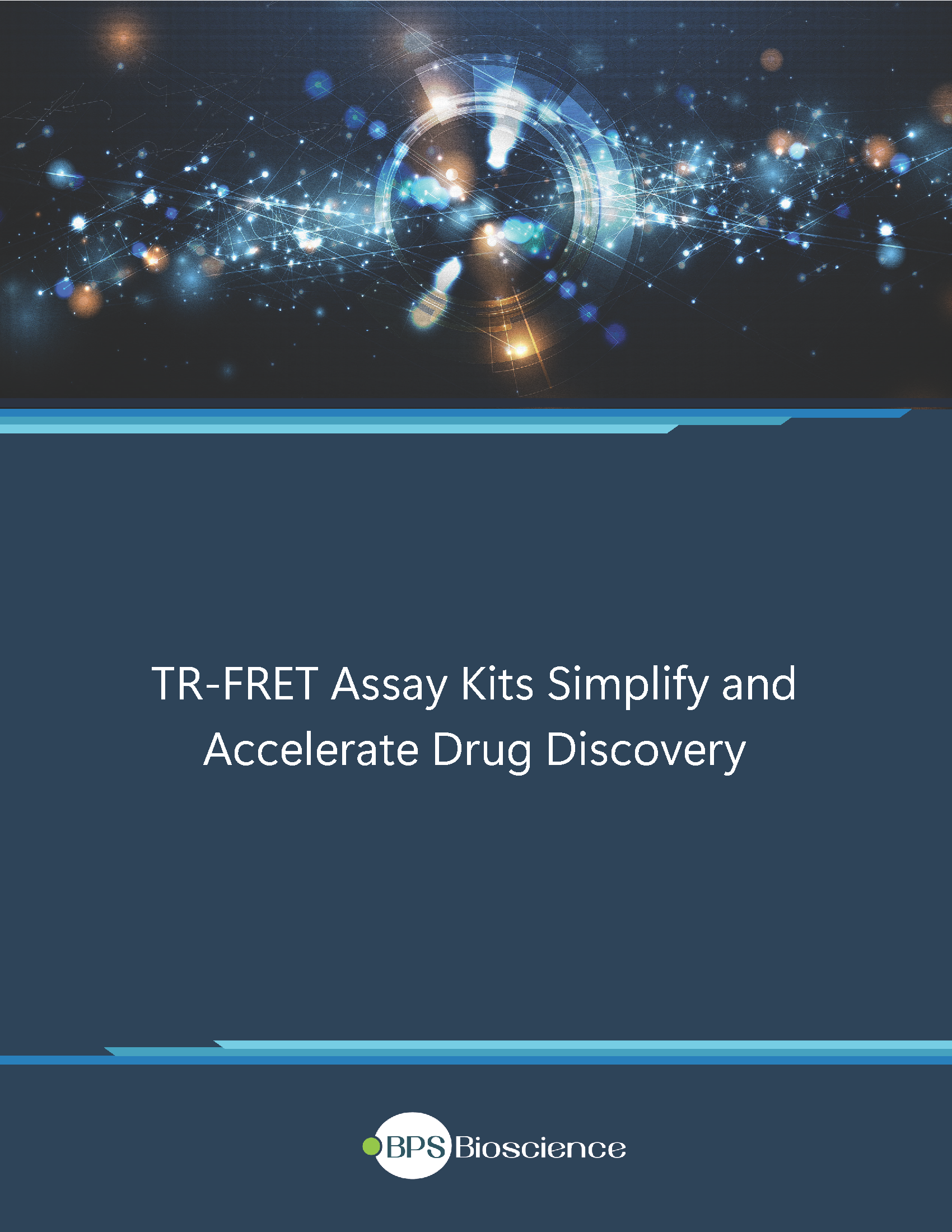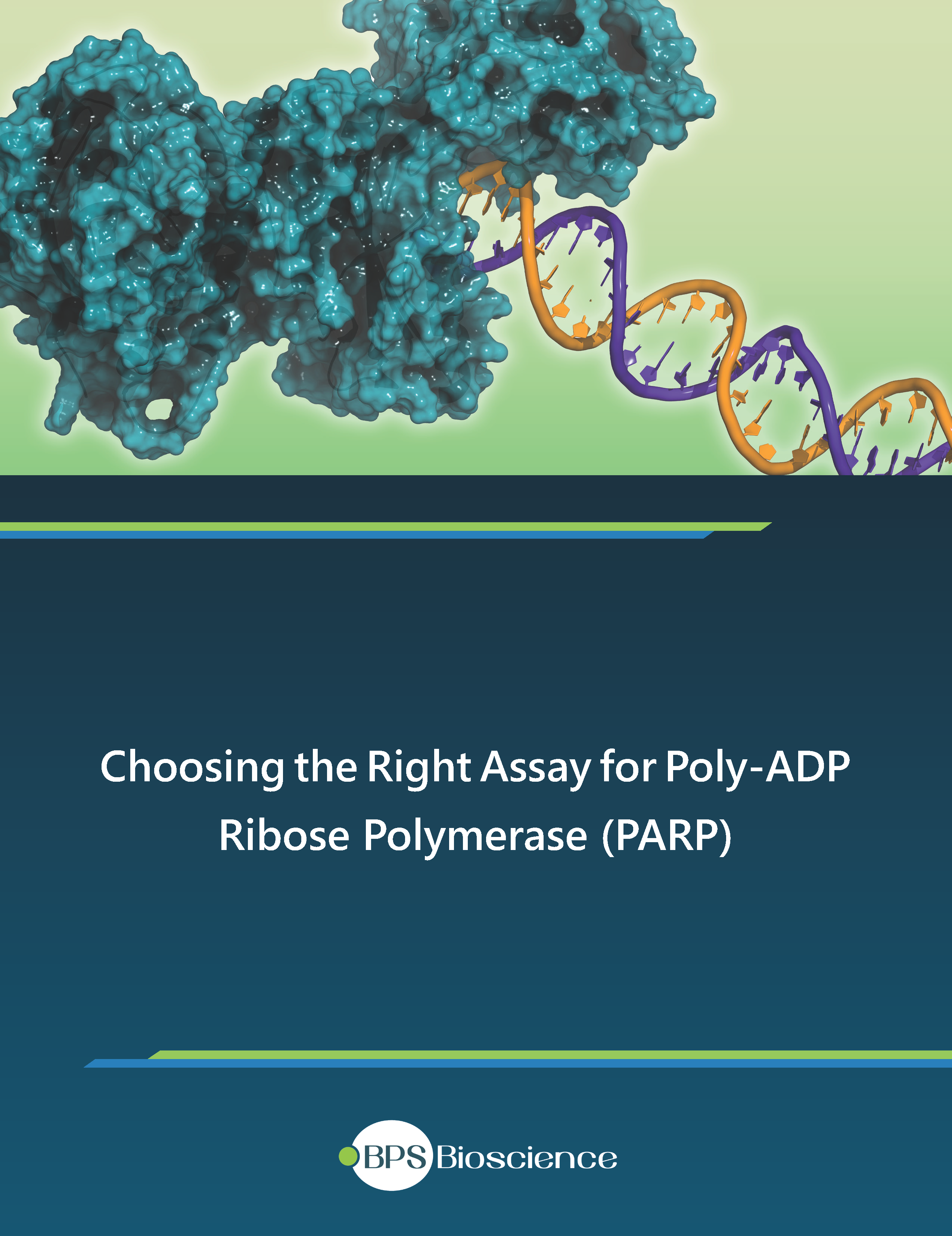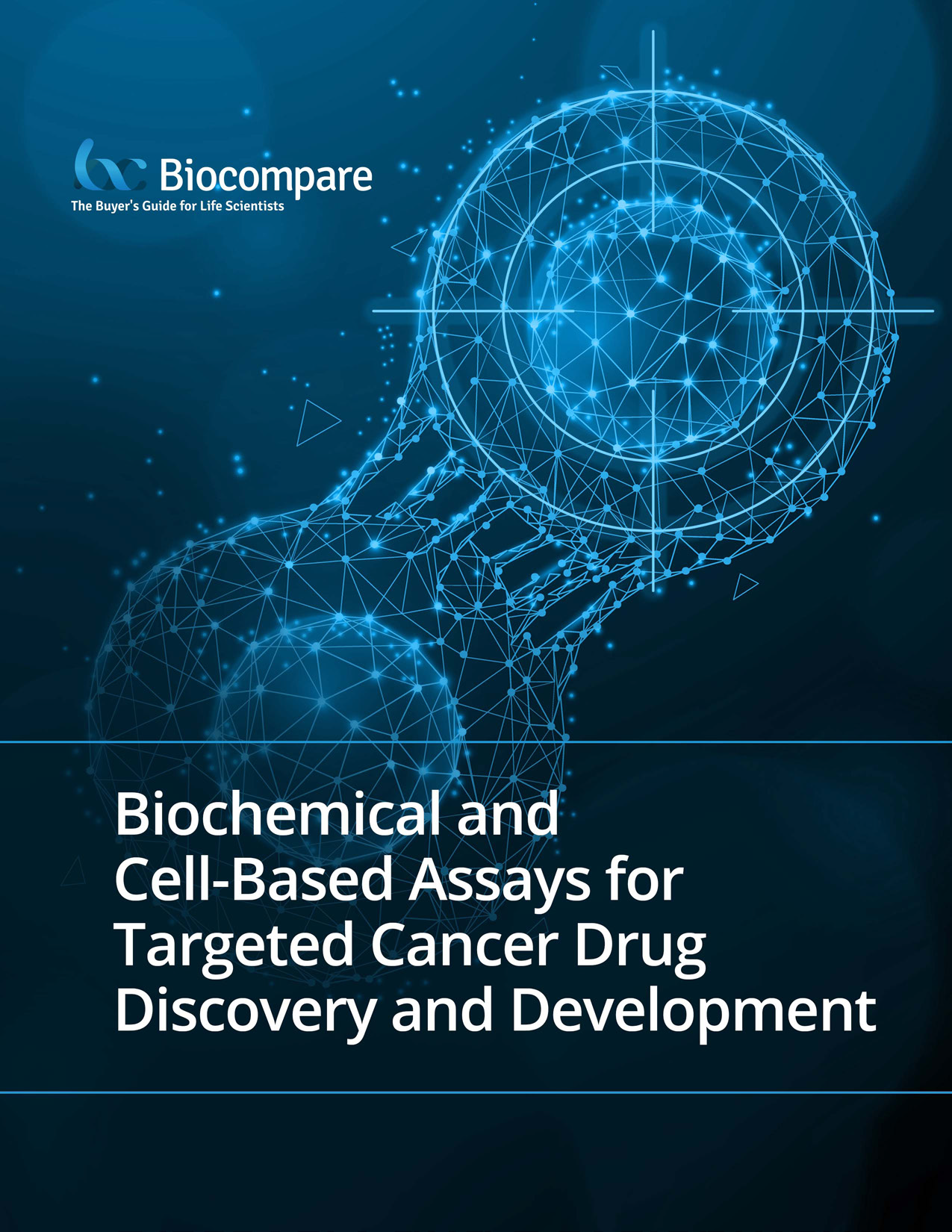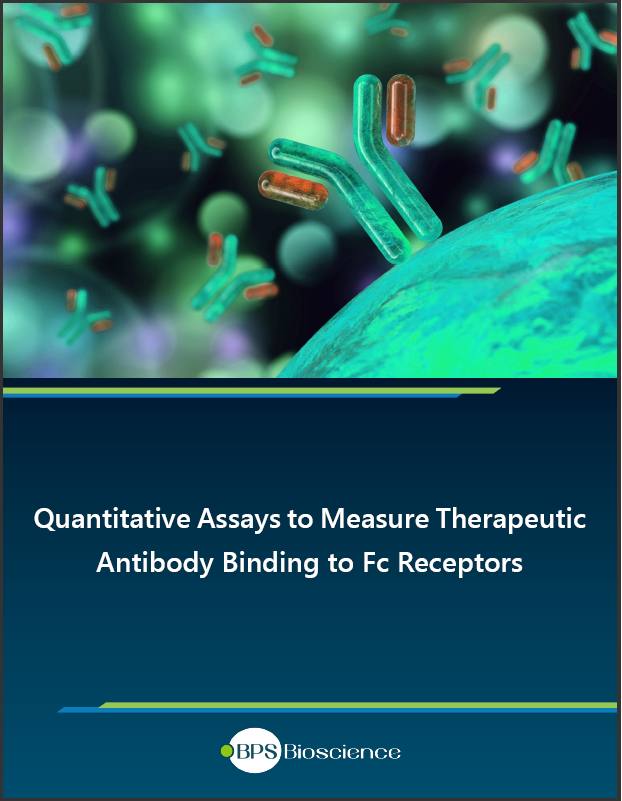eBooks

Time-Resolved Fluorescence Energy Transfer (TR-FRET) is ideal for the design of high-throughput homogeneous assays and is well suited for studying a wide range of interaction events, including many that characterize cellular signaling pathways. This eBook provides basic principles of the TR-FRET technology and shows select examples of assay design.

PARP family member proteins are involved in a wide range of biological functions: repair of DNA damage, genome stability, chromatin remodeling, mitotic spindle assembly, regulation of RNA turnover and of gene expression, and DNA methylation. Specifically targeting their functions appears promising in certain therapeutic areas such as cancer. This eBook describes different types of assays used to evaluate PARP activity and screening for specific inhibitors.

Biochemical and cell-based assays are essential tools for targeted drug discovery and development, being widely used for identifying proteins of interest, investigating the molecular mechanisms of disease, and refining the efficacy of potential clinical candidates. This eBook discusses some of the different types of assays available to researchers and includes a deep dive into the methods used for studying Poly-ADP Ribose Polymerases (PARPs) and Fc Receptors.

Interactions between antibody drugs and Fc Receptors impact therapeutic efficacy. The development of new therapeutic antibodies (which are mostly IgGs) may require optimization of their interaction with FcRn or with the appropriate FcγR. Scientists must choose cell models and assays carefully depending on their intended goal. This eBook summarizes the basics of Fc receptor function and discusses biochemical and cell-based assays that enable antibody optimization projects.
Chimeric antigen receptor (CAR)-T cell immunotherapies have revolutionized the treatment of hematopoietic cancers and spurred research in engineered immune effector cell therapy. This eBook provides a background on CAR-T cell therapy and describes workflows and tools for creating, evaluating, and validating CAR-T cells. The final chapter introduces the rise of engineered CAR-NK cells as an alternative therapeutic approach.
Tumor cells are known to utilize immune checkpoint inhibitor molecules to dampen immune anti-tumor responses. TIGIT is a checkpoint molecule that interacts with CD155 and may have the potential as a therapeutic target to restore immune cell function. This eBook discusses a number of useful tools for the study of TIGIT function in the context of immunotherapy.
The current global pandemic of COVID-19 is caused by the coronavirus SARS-CoV-2. This eBook describes BPS Bioscience’s lentivirus-based tools, including Spike pseudotyped lentiviruses, and how they enable SARS-CoV-2 research. Our updated toolset features lentiviruses for emerging Omicron variants as well.
The adaptation of the CRISPR-Cas9 system for gene editing in mammalian cells has rapidly expanded research capabilities, as well as potential new avenues for in vitro diagnostics and therapeutic applications. This eBook provides a background on the CRISPR-Cas9 system and delves into product offerings from BPS Bioscience that enable research using CRISPR technology.
Fluorescence Polarization (FP) technology measures changes in light polarization emitted by a fluorescent tracer in a sample. FP is widely used to monitor molecular interactions in solution and provides a basis for direct and competition assays. This eBook outlines the basics of FP and discusses the advantages and limitations of FP-based biochemical assays.
Engineered CAR-T cells have provided a new hope in the fight against cancer. The design and engineering of CAR-T cells includes extensive validation and optimization at various steps of the process, which in turn requires the development of many types of assays. This can be time and resource-consuming; therefore, the availability of pre-validated tools and assay kits can significantly accelerate research efforts. This eBook describes how BPS Bioscience's CAR T-cell development services can be utilized to optimize and expedite CAR-T cell development.
The majority of B cell malignancies, notably B cell lymphomas, acute lymphoblastic leukemia (ALL), and chronic lymphocytic leukemia (CLL), express normal to high levels of CD19. It is a nearly ideal target for cancer immunotherapy. This eBook details the form and functions of CD19 and illustrates the BPS Bioscience solutions for immunotherapy research to target CD19.
The ultimate function of a CAR-T cell in cancer immunotherapy is to kill tumor cells. There are various techniques to assess the functional quality of CAR-T cells. This eBook provides an overview BPS Bioscience tools for assessing and validating the quality of engineered CAR-T cells.
Chimeric Antigen Receptors (CAR) are transmembrane receptors engineered to be expressed on cytotoxic T cells in order to redirect their targeting to antigens on tumor cells. This eBook describes techniques and tools used to evaluate CAR expression and function on transduced cells.

